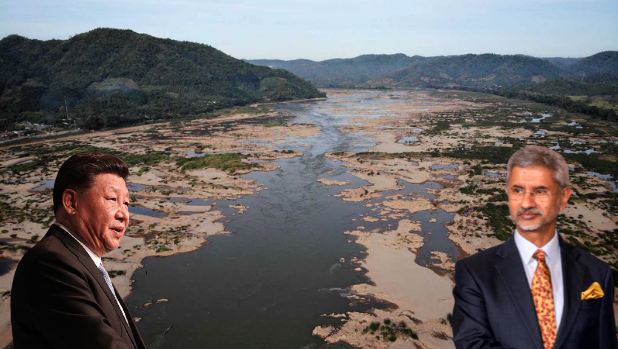India’s External Affairs Minister S Jaishankar has been invited by the US for the “Friends of the Mekong Ministerial Meeting” which will be co-chaired by US secretary of state Blinken on Thursday (August 5) on the sidelines of the India-ASEAN foreign ministers meet, hosted by Brunei. The meeting brings together the five lower Mekong countries and partners and institutions like World Bank, the Asian Development Bank, New Zealand, Japan, South Korea and Australia on the table.
The US under President Donald Trump’s tenure had opened new fronts against China, and the Mekong river became a focal point of geopolitical rivalry between the two countries. The US back then had accused China of “hoarding” the Mekong river water which imperils the food, water and resources of the Southeast Asian economies. However, with Trump out of the equation and Biden refusing to act firmly against Jinping, the issue was put in the cold bag.
However, after becoming distant in the region and China bullying Washington on nearly every world stage, Biden has asked the hand of the Modi government which has strong ties with ASEAN nations to corner China on the issue. Moreover, India has a similar struggle with China on the Brahmaputra river system as Beijing builds massive dams upstream of the river to upend the natural flow of the water.
According to the Mekong River Commission (MRC), water levels of the Mekong river have dropped to “worrying levels” due to outflow restrictions from Chinese hydropower dams upstream
As reported by TFI, China has built 11 dams on the mighty Mekong River which have a combined water capacity of more than 47 billion cubic meters. Moreover, 80 per cent of the 12 million households in these agrarian economies are directly dependent upon the Mekong River for their survival. Fish and rice form a part of the staple diet of the people in these countries.
According to the US-based research company, the damaging droughts in the aforementioned downstream LMB countries can be largely attributed to the Chinese dams that have been holding backwaters.
By raising the perilous issue and standing with the smaller countries of the Mekong region, New Delhi attempts to send a strong message to the CCP Politburo that it should stop playing with the nature and lives of millions of people for some measly gains. The similarities between the two river systems and the lifestyle of the population living around the rivers mean that if India doesn’t start pressuring China, it could be in for similar trouble in the future.
